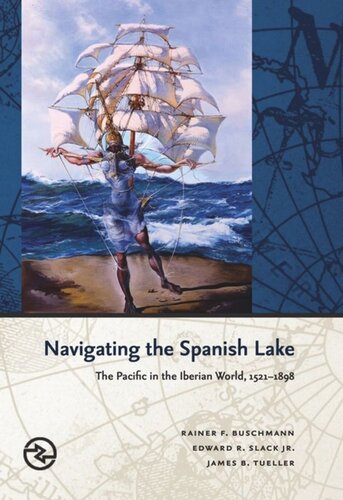

Most ebook files are in PDF format, so you can easily read them using various software such as Foxit Reader or directly on the Google Chrome browser.
Some ebook files are released by publishers in other formats such as .awz, .mobi, .epub, .fb2, etc. You may need to install specific software to read these formats on mobile/PC, such as Calibre.
Please read the tutorial at this link: https://ebookbell.com/faq
We offer FREE conversion to the popular formats you request; however, this may take some time. Therefore, right after payment, please email us, and we will try to provide the service as quickly as possible.
For some exceptional file formats or broken links (if any), please refrain from opening any disputes. Instead, email us first, and we will try to assist within a maximum of 6 hours.
EbookBell Team

4.3
18 reviewsNavigating the Spanish Lake examines Spain’s long presence in the Pacific Ocean (1521–1898) in the context of its global empire. Building on a growing body of literature on the Atlantic world and indigenous peoples in the Pacific, this pioneering book investigates the historiographical “Spanish Lake” as an artifact that unites the Pacific Rim (the Americas and Asia) and Basin (Oceania) with the Iberian Atlantic. Incorporating an impressive array of unpublished archival materials on Spain’s two most important island possessions (Guam and the Philippines) and foreign policy in the South Sea, the book brings the Pacific into the prevailing Atlanticentric scholarship, challenging many standard interpretations. By examining Castile’s cultural heritage in the Pacific through the lens of archipelagic Hispanization, the authors bring a new comparative methodology to an important field of research.
The book opens with a macrohistorical perspective of the conceptual and literal Spanish Lake. The chapters that follow explore both the Iberian vision of the Pacific and indigenous counternarratives; chart the history of a Chinese mestizo regiment that emerged after Britain’s occupation of Manila in 1762-1764; and examine how Chamorros responded to waves of newcomers making their way to Guam from Europe, the Americas, and Asia. An epilogue analyzes the decline of Spanish influence against a backdrop of European and American imperial ambitions and reflects on the legacies of archipelagic Hispanization into the twenty-first century.
Specialists and students of Pacific studies, world history, the Spanish colonial era, maritime history, early modern Europe, and Asian studies will welcome Navigating the Spanish Lake as a persuasive reorientation of the Pacific in both Iberian and world history.